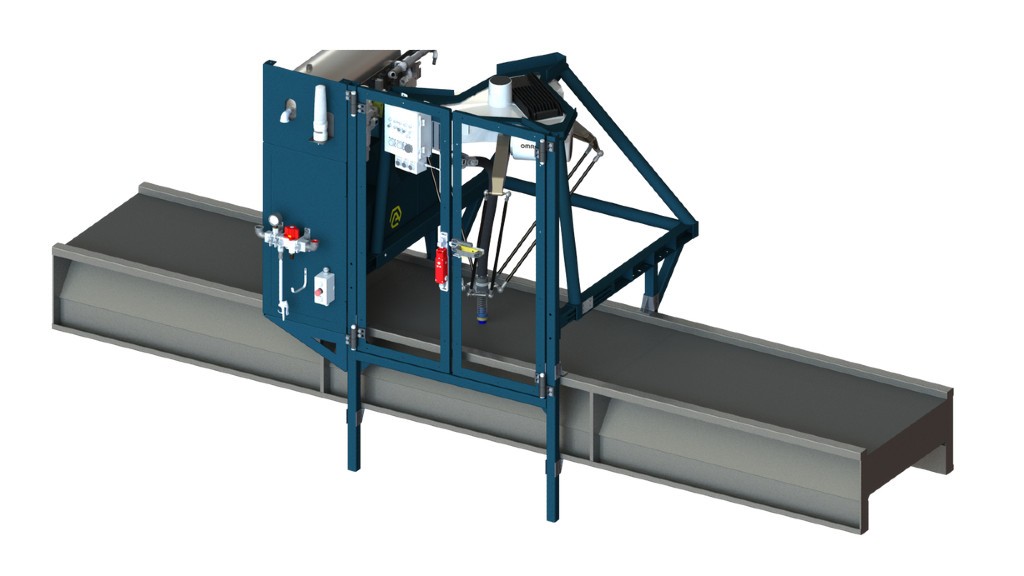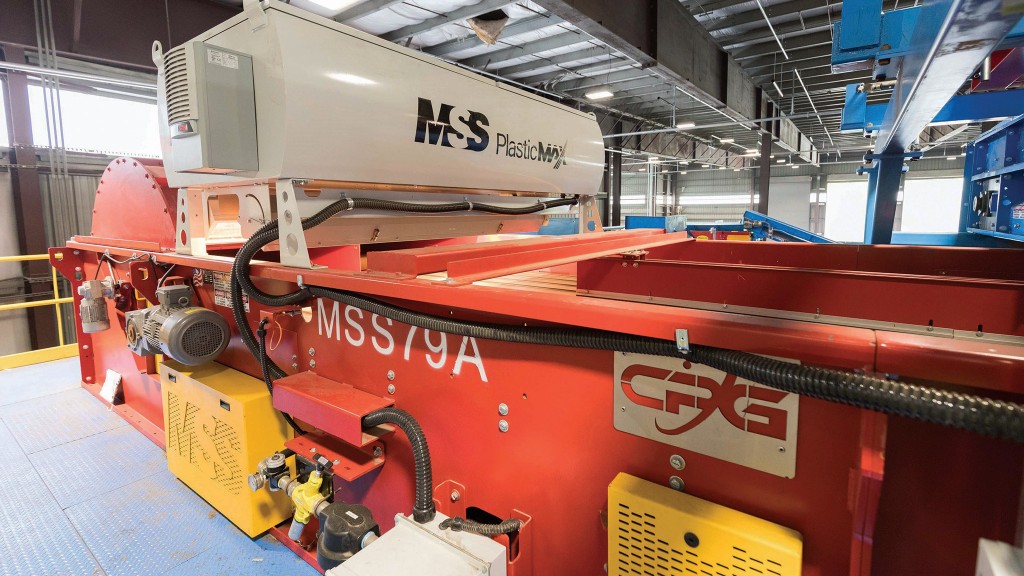AMP Robotics' new AI-enabled compact sorting system adapts to MRF space constraints
New integrated facility technology helps modernize infrastructure

AMP Robotics Corp. now offers a complete line of AI-powered automation solutions for materials recovery facilities (MRFs), along with a standalone, integrated facility solution to expand recycling infrastructure.
"As demand for automation in the waste industry continues to grow, we've expanded our capabilities to provide customers with solutions for both new and existing recycling facilities alike," says Matanya Horowitz, founder and CEO of AMP Robotics.
New compact robotic sorting system
AMP Cortex-C is a compact version of AMP's AI-guided robotics system that adapts to space constraints and brings the company's AI and robot technology to more facility locations. Cortex-C is a small-footprint, easy-to-install robot designed to provide MRFs and plastic reclamation facilities (PRFs) with a consistent, reliable sorting robot for constricted locations that are hard to staff or where existing labour could be redistributed.
Cortex-C utilizes AMP's robotics technology, AI object recognition, and control software consistent with AMP Cortex units. The system shares the experiential learning features of AI gained from a global fleet of more than 300 installations and fits into additional locations to expand sortation points and material recovery within facilities.
"The expertise we've built in recycling technology has enabled us to expand where and what we can sort so we can bring the benefits of AI-driven automation to more locations in more facilities," says Jeremy Neigher, general manager of AMP's technology solutions group. "We're committed to innovating so we can deliver the latest advancements in AI and automation to our customers to increase their profitability and improve their bottom line."
Cortex-C is adaptable to an array of conveyor belt sizes, angles, and configurations. There's no need for costly retrofits or downtime. AMP completes installations over the course of a weekend with on-site support. Cortex-C shares parts and components with the standard Cortex system, with similarly minimal service expectations to streamline the fleet within a facility.
AI-driven improvements in targeting and robotic gripping reliability
Along with Cortex-C, AMP is also rolling out AI advancements to further increase recovery performance and reliability. The company's new advanced targeting ("AT") algorithms leverage machine learning to determine the optimal grip area for each item its system identifies, based on the object's discrete material features and condition. This ability to target and guide a robot to the desired grip area increases yield by learning to avoid creases, holes, and other difficult-to-grasp locations on objects. Similar to AMP's AI for the identification of material type, these algorithms learn from experience across the fleet and adapt to new gripping technologies. These AI-driven software advancements will be available for all Cortex and Cortex-C units.
Cortex and Cortex-C are among AMP's portfolio of recycling solutions and utilizes AMP's neural network. The network consists of AMP Vision, a modular computer vision system; AMP Clarity, a portal for recycling data and insights; and AMP Vortex, an AI-powered automation technology.
Integrated AI-powered facility solution
AMP's AI platform, which powers the company's range of offerings for existing MRFs, also enables AMP to extend its capabilities to a comprehensive facility solution. The company's secondary sortation facility pilot where AMP processed recyclable mixed plastics, paper, and metals sourced from residue supplied by primary MRFs and other material providers, allowed the company to incubate and improve its model for new recycling infrastructure. AMP has been actively testing the capabilities of AI and automation to direct facility design, focusing on lowering the cost of recycling while maximizing yields in terms of both recovery and quality. AMP is applying its learnings in secondary sortation to new facilities that the company will design, build out, operate, and service for recyclers. These facilities will target single-stream and secondary feedstocks.
"The current MRF infrastructure is insufficient to capture the billions of dollars worth of recyclables that go unrecovered annually, and its high-cost burden compounds this problem, making recycling economically unfeasible in many geographies," adds Gale Clark, general manager of AMP's facility solutions group. "Our technology can influence not only sorting processes within the current MRF infrastructure, but the design of AI-powered facilities to increase efficiency and recycling capacity, prevent loss of recyclables to landfill, and supply greater volumes of post-consumer recycled content. AMP brings creative structuring so customers experience capital efficiency in partnering with us."
AMP is exhibiting and speaking at WasteExpo 2023 at booth 847.



